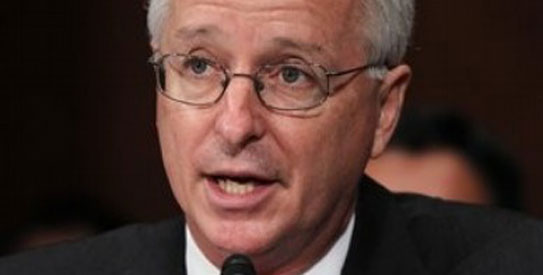
ISLAMABAD: The American ambassador to Islamabad phoned Washington with an urgent plea: Stop an imminent CIA drone strike against militants on the Pakistani side of the Afghan border.
He feared the timing of the attack would further damage ties with Islamabad, coming only a day after the government grudgingly freed a CIA contractor held for weeks for killing two Pakistanis.
Ambassador Cameron Munter's rare request, disclosed to The Associated Press by several US officials, was forwarded to the head of the CIA, who dismissed it.
US officials said Leon Panetta's decision was driven by anger at Pakistan for imprisoning Raymond Davis for so long and a belief that the militants being targeted were too important to pass up.
The deadly March 17 attack helped send the US-Pakistan relationship into a tailspin from which it has not recovered.
The timing of the strike, and others that followed, outraged Pakistani officials, complicating US efforts to win Pakistani cooperation on the Afghan war and retain support for the drone program.
Newly revealed details of the drone raids were provided by US and Pakistani officials who spoke on condition of anonymity because of the sensitivity of the program.
Among them were attacks that followed an April visit by Pakistan's spy chief to Washington as well as trips here by Sen. John Kerry and Secretary of State Hillary Rodham Clinton after the American raid that killed Osama bin Laden in a Pakistani military town in May.
Seven years into a secret program that has killed scores of al-Qaida and Taliban fighters, there are increasing questions over whether it is worth the diplomatic backlash in Pakistan.
President Barack Obama has dramatically ramped up the program, unleashing more than 200 strikes since he took office compared to fewer than 50 during the Bush administration.
The Pakistani government is widely believed to have supported the program in the past and even allowed the drones to take off from bases inside Pakistan, but that support has waned as relations between the two countries have soured.
The attacks have also strained the relationship between the US State Department and the CIA, where officials argue that killing militants who threaten US interests should take priority over political considerations, said US officials.
That tension was clearly visible between Ambassador Munter and the CIA station chief in Islamabad, who recently left his post because of illness, said a senior Western official in the region.
''When the doors are closed they are shouting at each other, but once the doors are open they are congenial in front of the embassy staff,'' said the official.
The hard-charging station chief also clashed with the head of Pakistan's main intelligence agency, the ISI, over drone strikes, said a Pakistani official.
The CIA does not comment on the drone program. A US official familiar with the issue played down the tension. ''It is very, very rare for the chief of mission to express concern about any particular operation,'' the official said, referring to the ambassador. ''When concerns are raised, they're always given close consideration.''
Munter must sign off on every planned drone attack in Pakistan, although he rarely voices an objection, said a former aide to the ambassador. If Munter disagrees with a planned strike, the CIA director can appeal to him, said two U.S. officials, providing the most detailed description of the process to date.
Clinton can also weigh in, and has done so at least once, one US official said. On March 17, Munter used the embassy's secure line in an attempt to stop an imminent drone strike.
His concern was that the strike, a day after the release of the CIA contractor Davis, would set back Washington's already shaky relations with Islamabad, said the former aide and a senior US official.
The Davis case had left bad feelings on both sides. On Jan. 27 in Lahore, Davis shot to death two Pakistanis who he said were trying to rob him, enraging many people in a country where anti-American sentiment is high.
The US insisted Davis had immunity from prosecution, but he was not released until March 16 under a deal that compensated the victims' families. Pakistan's security agencies came under intense domestic criticism for freeing him.
Munter's request went to the State Department and was forwarded to then-CIA director Panetta, now secretary of defense, who insisted on going ahead, said the officials. It is unclear whether Clinton was involved in the decision.
The former aide said the strike reflected the CIA's anger at the ISI, which it blamed for keeping Davis in prison for seven weeks.
''It was in retaliation for Davis,'' the aide said. ''The CIA was angry.'' The CIA also believed it was vital to kill the militants targeted in the strike in the Datta Khel area of North Waziristan, said the senior US official.












































Dear visitor, the comments section is undergoing an overhaul and will return soon.